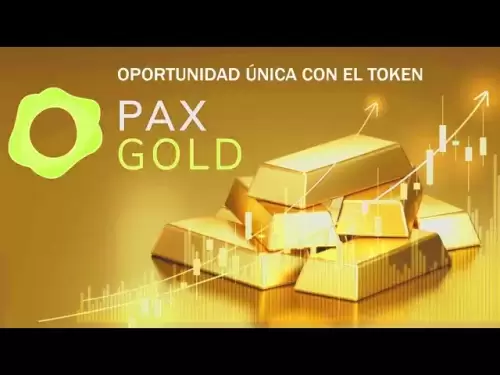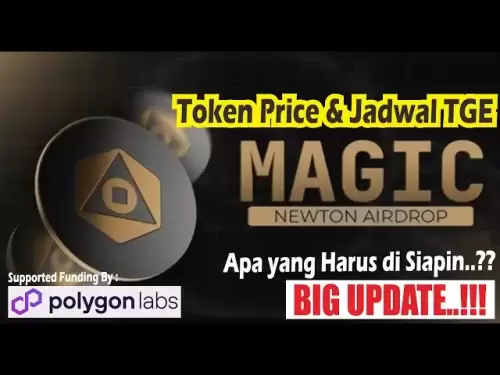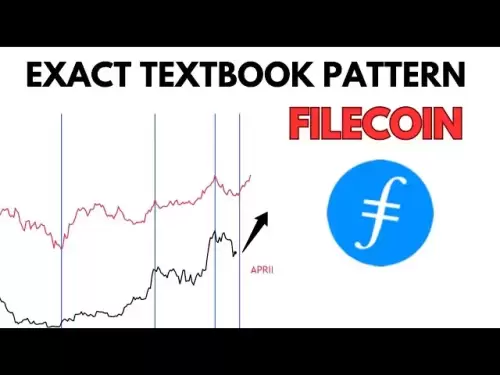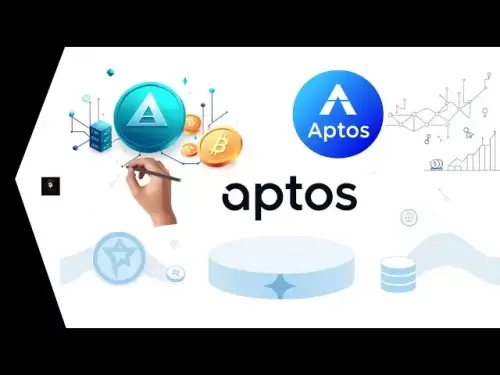-
 Bitcoin
Bitcoin $99,594.2189
-3.59% -
 Ethereum
Ethereum $2,188.5793
-9.00% -
 Tether USDt
Tether USDt $1.0001
-0.02% -
 XRP
XRP $1.9745
-5.82% -
 BNB
BNB $608.9511
-3.73% -
 Solana
Solana $130.4575
-5.93% -
 USDC
USDC $1.0000
0.01% -
 TRON
TRON $0.2637
-3.59% -
 Dogecoin
Dogecoin $0.1493
-5.97% -
 Cardano
Cardano $0.5322
-6.72% -
 Hyperliquid
Hyperliquid $33.9044
3.33% -
 Bitcoin Cash
Bitcoin Cash $449.6411
-5.46% -
 UNUS SED LEO
UNUS SED LEO $8.9629
0.43% -
 Sui
Sui $2.3943
-8.35% -
 Chainlink
Chainlink $11.4402
-7.83% -
 Stellar
Stellar $0.2241
-6.49% -
 Avalanche
Avalanche $16.1489
-4.24% -
 Toncoin
Toncoin $2.7182
-5.94% -
 Shiba Inu
Shiba Inu $0.0...01040
-5.72% -
 Litecoin
Litecoin $78.7882
-4.07% -
 Ethena USDe
Ethena USDe $1.0004
-0.01% -
 Hedera
Hedera $0.1305
-7.45% -
 Monero
Monero $297.0030
-5.32% -
 Dai
Dai $0.9997
-0.02% -
 Polkadot
Polkadot $3.1834
-6.03% -
 Bitget Token
Bitget Token $3.9788
-7.03% -
 Uniswap
Uniswap $6.1327
-10.62% -
 Pepe
Pepe $0.0...08689
-8.30% -
 Pi
Pi $0.4826
-9.65% -
 Aave
Aave $219.8043
-9.69%
can cryptocurrency be used to buy things
Using cryptocurrency as a viable medium of exchange offers advantages like enhanced security, lower fees, and global accessibility, despite challenges such as price volatility, merchant adoption, and technical complexity.
Jan 29, 2025 at 03:37 pm
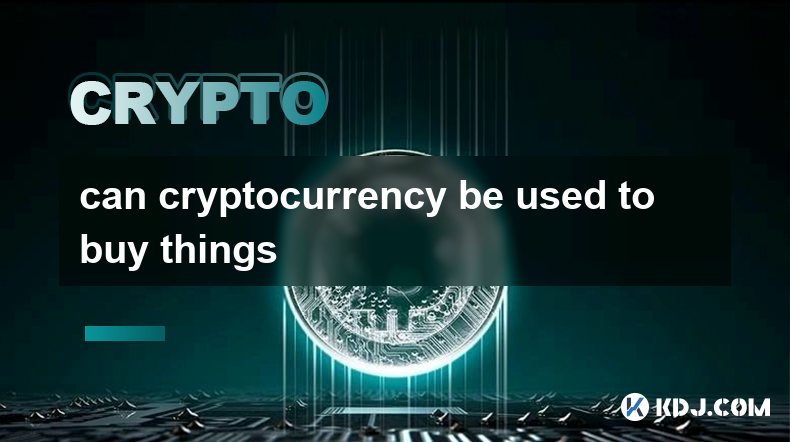
Key Points
- Understanding the concept of cryptocurrency as a viable medium of exchange
- Exploring the advantages and challenges of using cryptocurrency for purchases
- Identifying the platforms and merchants that accept cryptocurrency payments
- Navigating the process of using cryptocurrency to make purchases safely and securely
- Exploring the emerging trends and future prospects of cryptocurrency in the retail industry
Using Cryptocurrency to Buy Things
Cryptocurrency has emerged as a transformative force in the financial realm, offering decentralized and secure transactions. With its growing adoption, the question of whether cryptocurrency can be used to buy things naturally arises. This article delves into the intricacies of using cryptocurrency for purchases, providing a comprehensive guide to this increasingly prevalent practice.
1. Understanding Cryptocurrency as a Medium of Exchange
To grasp the concept of using cryptocurrency for purchases, it is essential to understand its nature as a medium of exchange. Cryptocurrency, unlike traditional fiat currencies, operates on decentralized blockchain networks, eliminating the need for intermediaries like banks. Each transaction is immutably recorded on the blockchain, ensuring transparency and security.
2. Advantages of Using Cryptocurrency for Purchases
Embracing cryptocurrency for purchases offers several advantages, including:
- Enhanced Security: Cryptocurrency transactions are encrypted and stored on decentralized blockchain networks, making them highly resistant to fraud and hacking.
- Lower Fees: Cryptocurrency transactions often incur lower fees compared to traditional payment methods, eliminating intermediaries and reducing transaction costs.
- Global Accessibility: Cryptocurrency transactions can be conducted seamlessly across borders without geographical restrictions, offering convenience and accessibility on a global scale.
3. Challenges of Using Cryptocurrency for Purchases
Despite its advantages, using cryptocurrency for purchases also poses certain challenges:
- Price Volatility: The value of cryptocurrencies can fluctuate rapidly, potentially impacting the purchasing power of users and merchants.
- Merchant Adoption: While cryptocurrency adoption is growing, not all merchants currently accept it as a form of payment, limiting its widespread use for purchases.
- Technical complexity: Navigating cryptocurrency wallets and understanding blockchain technology can be challenging for some users, creating a barrier to entry.
4. Platforms and Merchants Accepting Cryptocurrency Payments
To use cryptocurrency for purchases, it is crucial to identify platforms and merchants that accept it. Some popular platforms include:
- Cryptocurrency Exchanges: Exchanges like Coinbase and Binance allow users to buy, sell, and store cryptocurrencies, offering easy access to the market.
- Payment Gateways: Gateways like BitPay process cryptocurrency payments for merchants, simplifying the integration of cryptocurrency into their existing payment systems.
- Online Marketplaces: Marketplaces like Amazon and Overstock accept certain cryptocurrencies for purchases, expanding the reach of cryptocurrency payments.
5. Using Cryptocurrency to Make Purchases Safely and Securely
When using cryptocurrency for purchases, security is paramount. Here are some precautions:
- Use Reputable Platforms: Only interact with reputable cryptocurrency exchanges and platforms to ensure the safety of your assets.
- Secure Your Wallet: Protect your cryptocurrency wallet with a strong password and two-factor authentication to prevent unauthorized access.
- Confirm Transactions Carefully: Before finalizing cryptocurrency transactions, always double-check the recipient address and transaction details to avoid errors.
6. Emerging Trends and Future Prospects of Cryptocurrency in Retail
The integration of cryptocurrency into the retail industry is constantly evolving. Emerging trends include:
- Cryptocurrency-Only Stores: Physical stores dedicated to selling goods and services exclusively with cryptocurrency are becoming increasingly common.
- Loyalty Programs: Merchants are implementing loyalty programs that offer rewards and incentives for customers who pay with cryptocurrency.
- Non-Fungible Tokens (NFTs): NFTs are unique digital assets that represent ownership of virtual or physical items, potentially opening up new possibilities for cryptocurrency-based purchases.
FAQs
Q: What is the most widely accepted cryptocurrency for purchases?
A: Bitcoin and Ethereum are two of the most commonly accepted cryptocurrencies by merchants, due to their high market cap and established network infrastructure.
Q: How can I convert my cryptocurrency to fiat currency after making a purchase?
A: Cryptocurrency exchanges offer the option to convert cryptocurrencies back to fiat currencies, allowing users to withdraw their funds in traditional currency formats.
Q: Is it safe to use cryptocurrency for large purchases?
A: While cryptocurrency transactions are generally secure, caution is advised when making large purchases due to price volatility and potential risks associated with the underlying technology.
Disclaimer:info@kdj.com
The information provided is not trading advice. kdj.com does not assume any responsibility for any investments made based on the information provided in this article. Cryptocurrencies are highly volatile and it is highly recommended that you invest with caution after thorough research!
If you believe that the content used on this website infringes your copyright, please contact us immediately (info@kdj.com) and we will delete it promptly.
- Shiba Inu, Meme Coin, ROI 2025: Is the Hype Over?
- 2025-06-23 02:25:12
- Jeremiah Smith, Chrome Hearts, and a Coin Flip: Ballin' on a Buckeye Budget
- 2025-06-23 02:25:12
- Cold Wallet Strategies for Stellar and Kaspa: Navigating Market Shifts
- 2025-06-23 02:35:13
- Bitcoin to $21 Million? Michael Saylor's Bold Prediction
- 2025-06-23 02:35:13
- Trump Family's Crypto Empire: From Skeptic to Kingpin?
- 2025-06-23 00:25:12
- BlockDAG, Cardano, and Polygon: Decoding the Crypto Buzz in the Big Apple
- 2025-06-23 00:45:12
Related knowledge

What is Ethereum’s Slashing mechanism and how to punish malicious behavior?
Feb 20,2025 at 03:08am
Key PointsOverview of slashingDifferent types of slashing in EthereumIncentives and consequences of slashingIdentifying and reporting slashed validatorsOngoing discussions and potential improvementsEthereum's Slashing Mechanism: Punishing Malicious BehaviorEthereum's slashing mechanism is an essential tool for ensuring network security and punishing mal...

What is the verifier node of Ethereum and how to become a verifier?
Feb 19,2025 at 06:00pm
The Verifier Node of Ethereum: A Comprehensive GuideKey Points:What is a Verifier Node?How to Become a Verifier NodeResponsibilities and Rewards of a Verifier NodeMinimum Requirements for Becoming a Verifier NodePotential Difficulties in Running a Verifier Node1. What is a Verifier Node?A Verifier Node is an independent entity on the Ethereum network th...

What is Ethereum’s staking, and how to participate and earn money?
Feb 19,2025 at 04:37pm
Key Points:Understanding Ethereum's Staking MechanismSteps to Participate in StakingBenefits and Rewards of StakingSecurity and Risk ConsiderationsTechnical Requirements and Hardware OptionsPotential Challenges and Troubleshooting TipsFAQs on Ethereum StakingWhat is Ethereum's Staking?Proof-of-Stake (PoS) is a consensus mechanism used in blockchain netw...

What is Ethereum’s DAO (Decentralized Autonomous Organization) and how does it work?
Feb 20,2025 at 03:12am
Key PointsDefinition and Structure of a DAOGovernance and Decision-Making in DAOsBenefits and Use Cases of DAOsChallenges and Limitations of DAOsWhat is Ethereum's DAO (Decentralized Autonomous Organization) and How Does It Work?Definition and Structure of a DAOA Decentralized Autonomous Organization (DAO) is an innovative governance and management fram...

What is Ethereum's multi-signature wallet and how to improve security?
Feb 20,2025 at 02:18pm
Key Points:Understanding the Concept of a Multi-Signature WalletBenefits and Drawbacks of Multisig WalletsRequirements for Setting Up a Multisig WalletStep-by-Step Guide to Generating a Multisig WalletImplementing Strategies for Enhanced Security1. Understanding the Concept of a Multi-Signature WalletA multi-signature (multisig) wallet in the Ethereum e...

What is Ethereum's oracle and how to provide data for smart contracts?
Feb 21,2025 at 01:30am
Key Points:Understanding the concept of oracles in EthereumExploring different types of oraclesDetailed guide on how to provide data for smart contractsAddressing potential challenges and considerationsWhat is Ethereum's Oracle?Oracles are crucial components in the Ethereum ecosystem, enabling smart contracts to access real-world data and off-chain even...

What is Ethereum’s Slashing mechanism and how to punish malicious behavior?
Feb 20,2025 at 03:08am
Key PointsOverview of slashingDifferent types of slashing in EthereumIncentives and consequences of slashingIdentifying and reporting slashed validatorsOngoing discussions and potential improvementsEthereum's Slashing Mechanism: Punishing Malicious BehaviorEthereum's slashing mechanism is an essential tool for ensuring network security and punishing mal...

What is the verifier node of Ethereum and how to become a verifier?
Feb 19,2025 at 06:00pm
The Verifier Node of Ethereum: A Comprehensive GuideKey Points:What is a Verifier Node?How to Become a Verifier NodeResponsibilities and Rewards of a Verifier NodeMinimum Requirements for Becoming a Verifier NodePotential Difficulties in Running a Verifier Node1. What is a Verifier Node?A Verifier Node is an independent entity on the Ethereum network th...

What is Ethereum’s staking, and how to participate and earn money?
Feb 19,2025 at 04:37pm
Key Points:Understanding Ethereum's Staking MechanismSteps to Participate in StakingBenefits and Rewards of StakingSecurity and Risk ConsiderationsTechnical Requirements and Hardware OptionsPotential Challenges and Troubleshooting TipsFAQs on Ethereum StakingWhat is Ethereum's Staking?Proof-of-Stake (PoS) is a consensus mechanism used in blockchain netw...

What is Ethereum’s DAO (Decentralized Autonomous Organization) and how does it work?
Feb 20,2025 at 03:12am
Key PointsDefinition and Structure of a DAOGovernance and Decision-Making in DAOsBenefits and Use Cases of DAOsChallenges and Limitations of DAOsWhat is Ethereum's DAO (Decentralized Autonomous Organization) and How Does It Work?Definition and Structure of a DAOA Decentralized Autonomous Organization (DAO) is an innovative governance and management fram...

What is Ethereum's multi-signature wallet and how to improve security?
Feb 20,2025 at 02:18pm
Key Points:Understanding the Concept of a Multi-Signature WalletBenefits and Drawbacks of Multisig WalletsRequirements for Setting Up a Multisig WalletStep-by-Step Guide to Generating a Multisig WalletImplementing Strategies for Enhanced Security1. Understanding the Concept of a Multi-Signature WalletA multi-signature (multisig) wallet in the Ethereum e...

What is Ethereum's oracle and how to provide data for smart contracts?
Feb 21,2025 at 01:30am
Key Points:Understanding the concept of oracles in EthereumExploring different types of oraclesDetailed guide on how to provide data for smart contractsAddressing potential challenges and considerationsWhat is Ethereum's Oracle?Oracles are crucial components in the Ethereum ecosystem, enabling smart contracts to access real-world data and off-chain even...
See all articles





















